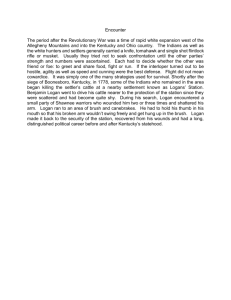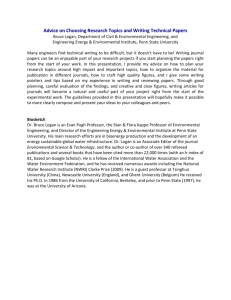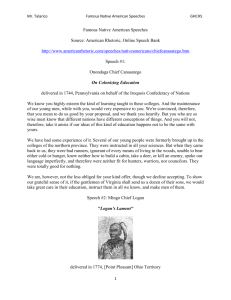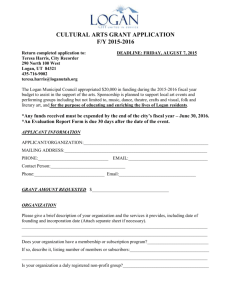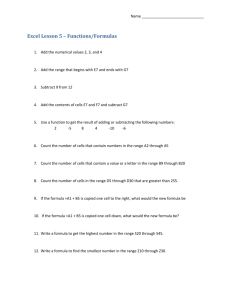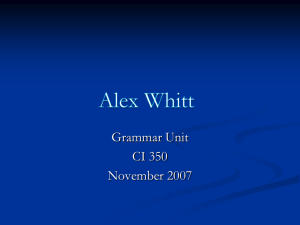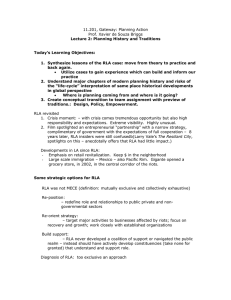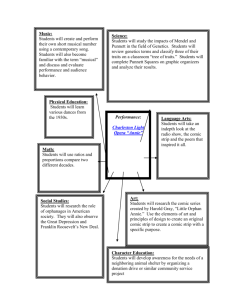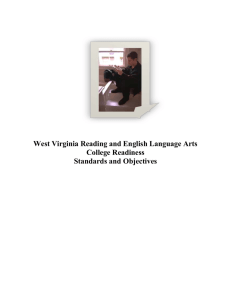Eloquent Words Lesson Plan
advertisement
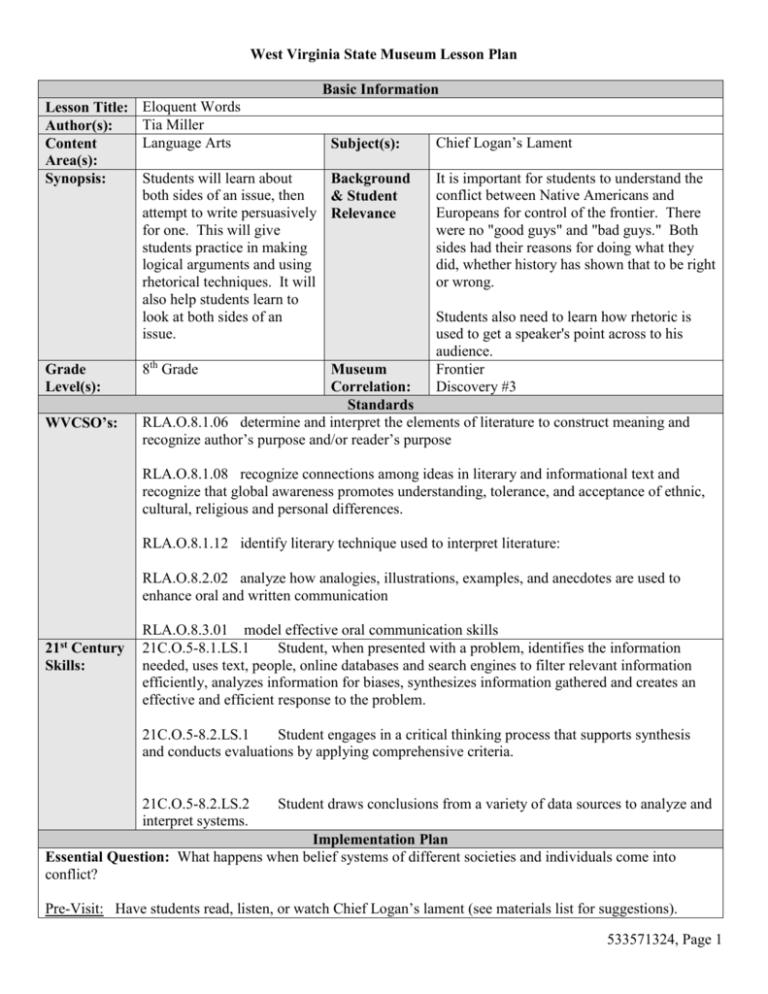
West Virginia State Museum Lesson Plan Basic Information Lesson Title: Author(s): Content Area(s): Synopsis: Grade Level(s): WVCSO’s: Eloquent Words Tia Miller Language Arts Subject(s): Students will learn about Background both sides of an issue, then & Student attempt to write persuasively Relevance for one. This will give students practice in making logical arguments and using rhetorical techniques. It will also help students learn to look at both sides of an issue. 8th Grade Chief Logan’s Lament It is important for students to understand the conflict between Native Americans and Europeans for control of the frontier. There were no "good guys" and "bad guys." Both sides had their reasons for doing what they did, whether history has shown that to be right or wrong. Students also need to learn how rhetoric is used to get a speaker's point across to his audience. Frontier Discovery #3 Museum Correlation: Standards RLA.O.8.1.06 determine and interpret the elements of literature to construct meaning and recognize author’s purpose and/or reader’s purpose RLA.O.8.1.08 recognize connections among ideas in literary and informational text and recognize that global awareness promotes understanding, tolerance, and acceptance of ethnic, cultural, religious and personal differences. RLA.O.8.1.12 identify literary technique used to interpret literature: RLA.O.8.2.02 analyze how analogies, illustrations, examples, and anecdotes are used to enhance oral and written communication 21st Century Skills: RLA.O.8.3.01 model effective oral communication skills 21C.O.5-8.1.LS.1 Student, when presented with a problem, identifies the information needed, uses text, people, online databases and search engines to filter relevant information efficiently, analyzes information for biases, synthesizes information gathered and creates an effective and efficient response to the problem. 21C.O.5-8.2.LS.1 Student engages in a critical thinking process that supports synthesis and conducts evaluations by applying comprehensive criteria. 21C.O.5-8.2.LS.2 interpret systems. Student draws conclusions from a variety of data sources to analyze and Implementation Plan Essential Question: What happens when belief systems of different societies and individuals come into conflict? Pre-Visit: Have students read, listen, or watch Chief Logan’s lament (see materials list for suggestions). 533571324, Page 1 West Virginia State Museum Lesson Plan Have them research the events leading up to his delivery of the speech. Discuss the speech with students: Do you agree with Logan? Do you think he should have signed the treaty or was he right not to? Did he have the right to kill all those people? Would you classify him as a villain or a hero? After discussion, let students work in pairs or groups to fill out the analysis chart. During Visit: In Discovery Room #3, students will learn more about white settlement in the area that is now WV and the conflict that existed between Native Americans who were already in the area and the European settlers who wanted to move in. Instruct them to research the European point-of-view as it compared to the Native American point-of-view they have already studied. They are to find reasons that the Europeans might have given for their rights to own the land and reasons that the Native Americans might have given that no one can own the land. Post-Visit: Once back in class, students are to work in pairs to create a pair of speeches – one that argues that the Europeans should have the western Virginia frontier, one that argues the same for the Native Americans. By working together, they can help each other think of reasons and construct an argument. Encourage them to use some of the rhetorical techniques that Chief Logan used. Once each pair has finished their speeches, they can deliver them for the class. Product Description The student’s final product will consist of a written and oral component. Students will work together in pairs on their final product. This will hopefully alleviate some of the concern over doing something that most eighth graders have not yet been asked to do – write and deliver a speech. First the pairs will work together to brainstorm the reasons that Europeans had for claiming the land and the reasons Native Americans had. Encourage them to use the information they gathered from the Discovery Room. Next, one person in the pair will choose a side to defend; the other person will defend the other side. Working together, they are to write a short speech (though incredibly powerful, Chief Logan’s speech is just under 200 words, a manageable length for eighth graders) where they give their side’s reasons for claiming the land. Encourage them to look back at the analysis sheet and see what rhetorical techniques Chief Logan used in his speech. Prompt them to try using at least one of the techniques listed at the bottom of the analysis worksheet. After writing a first draft, the pair will sit down for a two-on-one conference with the teacher so she can help them look for ways to revise. After a revision session, students will present their speeches to the class. The teacher can choose to do this debate style, with each person in a pair going one after the other, or she/he can choose to have all those arguing for one side go first and then those arguing for the other side. Once everyone has delivered their speeches, the class can discuss all the reasons that both sides had for claiming the land they now live on. Encourage students to come to a conclusion. Who was right? Who was wrong? Can we really say? As a follow-up, students can research other fights over land rights, like those between the Palestinians and Israelis. Material’s List Audio and Text Version of Speech: http://www.americanrhetoric.com/speeches/nativeamericans/chieflogan.htm TeacherTube – Video Version of Speech http://www.teachertube.com/view_video.php?viewkey=45da4c1ed7f7c05c7685 533571324, Page 2 West Virginia State Museum Lesson Plan Analysis Worksheet Rubric Assessment Completed analysis worksheet Speech – written and oral Students can use the internet to find a copy of Chief Logan’s speech and research information about the events leading up to the speech. Additional Notes 533571324, Page 3
